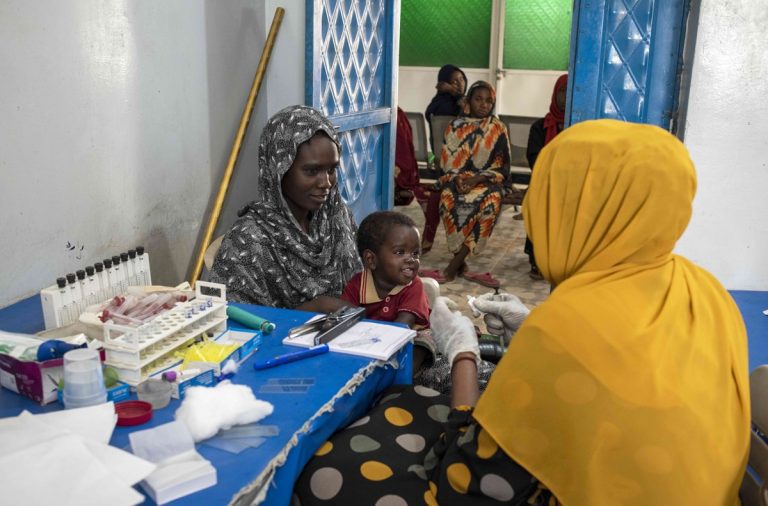THE Global Health Spending Report 2024 by the World Health Organization (WHO) shows that average per capita government spending on health across all country income groups decreased in 2022 compared to 2021 after a sharp increase during the early years of the pandemic . The report titled “Global health spending following the pandemic” was released in accordance with the Universal Health Coverage (UHC) Day campaign celebrated every year on December 12. The campaign’s goal for 2024 is to improve financial protection so people around the world can access the health services they need.
Public health spending is essential to achieving UHC. Its deprioritization can have disastrous consequences in a context where 4.5 billion people worldwide do not have access to basic health services and where 2 billion people face financial difficulties due to health costs.
“As access to health services improves globally, reliance on these services is pushing more and more people into financial hardship or poverty. Universal Health Coverage Day is a reminder that health for all means everyone can access the health services they need, without financial hardship,” said Dr Tedros Adhanom Ghebreyesus, Director-General of WHO.
Who pays for health care?
Protecting people from financial hardship due to health care costs is fundamental to achieving health for all. Yet the WHO report shows that out-of-pocket spending remains the main source of health financing in 30 low- and middle-income countries. In 20 of these countries, more than half of the country’s total health spending was paid out of pocket by patients, contributing to the cycle of poverty and vulnerability.
The challenges posed by the lack of financial protection for health are not limited to low-income countries. Even in high-income countries, direct payments lead to financial hardship and unmet need, particularly among poorer households. The most recent health accounts data show that in more than a third of high-income countries, more than 20% of total health spending was paid directly.
On UHC Day, WHO calls on leaders to make UHC a national priority and eliminate impoverishment from health-related spending by 2030. Effective strategies to strengthen financial protection include reducing or eliminating user fees for those who need them most, including people with low incomes or chronic illnesses, enacting legislation to protect people from impoverished healthcare costs and establish financing mechanisms health through public funding to cover the entire population.
Public funding must provide an affordable package of essential health services – from health promotion to prevention, treatment, rehabilitation and palliative care. – using a primary health care approach.
Lessons from the pandemic
During the COVID-19 pandemic of 2020 to 2022, public health spending – primarily through public health budgets – enabled health systems to respond quickly to the emergency. This reflects the advantage of public budgets in financing public health functions, particularly population-based public health interventions, compared to other health financing systems, during times of health emergency. Government funding helped protect more people and save more lives.
Coming out of the pandemic, countries find themselves at a crossroads. Governments face difficult decisions as they strive to build the resilience of health systems to future health threats while meeting the health needs of their populations in a challenging economic environment.
Twenty-five years of WHO tracking global health spending
The key to making better choices about future health investments is timely and reliable data on the level and structure of health spending. For 25 years, WHO’s Health Expenditure Tracking program has had a major influence on how crucial health spending information is compiled and reported nationally and globally.
Among his most notable achievements are the creation of the Global Health Expenditure Database – the world’s richest source of health spending data covering more than 190 countries since 2000 – and the Global Health Expenditure Report, published annually since 2017. These global public goods support informed policymaking , transparency and accountability around the world.
WHO and partners scale up efforts to impact UHC
This year’s UHC Day also provides a platform for a landmark discussion in WHO’s efforts to advance support and collaboration with countries in reorienting their health systems to advance UHC and achieving health security in countries, regions and globally. From December 11 to 13, national health representatives, heads of WHO country offices and health policy advisors from more than 125 countries are meeting in Lyon, France, to take stock of progress and challenges, agree on priority areas and working methods, and set the agenda. for the next phase of CSU Partnership from 2025 to 2027.
The Partnership for UHC is WHO’s flagship initiative for international cooperation for UHC, bringing together WHO and partners to support concrete actions to achieve UHC. It is funded by the European Union, Belgium, Canada, the French Ministry for Europe and Foreign Affairs, Germany, Irish Aid, the Government of Japan and the United Kingdom – Foreign, Commonwealth & Development Office .


